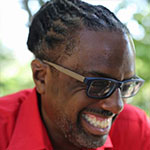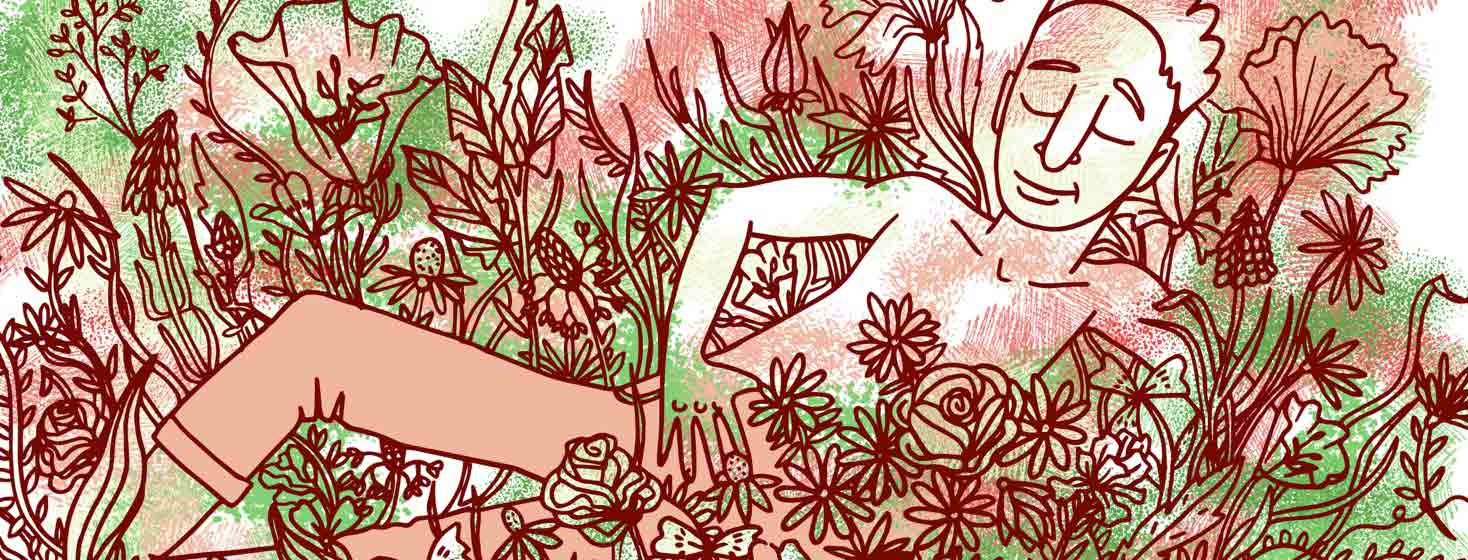Ask the Advocate: Coping with an HIV Diagnosis
For people who are newly diagnosed to people who are decades into their journey, coping with an HIV diagnosis is a process that looks different for everyone. So, we asked community advocates for H-I-V.net: What are some words of encouragement that you have for folks who are having a hard time coping with their HIV diagnosis? Read their responses!
Coping with an HIV diagnosis
 "The first piece of advice I would give to someone who is struggling with their HIV diagnosis: it's ok not to be ok. It's ok to take all the time you need to process. I wish someone would have given these words of wisdom. After receiving my diagnosis, I completely went into denial mode, followed by shame and guilt, followed by suicidal thoughts, followed by, "Why me?" I didn't give myself permission to process what was going to happen to me, my body, and my life because when you're diagnosed with HIV, that begins a new chapter in your life. I had to learn to forgive myself, to be kind to myself, to love myself again. Another piece of advice I will give someone struggling with their HIV diagnosis is to learn everything that you can learn about HIV. Do your research. Know all the facts about the disease you were diagnosed with. This helped me out so much, once I knew what was happening with my body. This made it easier for me to communicate with my doctor or disclose my status to potential sexual partners." - Jahlove
"The first piece of advice I would give to someone who is struggling with their HIV diagnosis: it's ok not to be ok. It's ok to take all the time you need to process. I wish someone would have given these words of wisdom. After receiving my diagnosis, I completely went into denial mode, followed by shame and guilt, followed by suicidal thoughts, followed by, "Why me?" I didn't give myself permission to process what was going to happen to me, my body, and my life because when you're diagnosed with HIV, that begins a new chapter in your life. I had to learn to forgive myself, to be kind to myself, to love myself again. Another piece of advice I will give someone struggling with their HIV diagnosis is to learn everything that you can learn about HIV. Do your research. Know all the facts about the disease you were diagnosed with. This helped me out so much, once I knew what was happening with my body. This made it easier for me to communicate with my doctor or disclose my status to potential sexual partners." - Jahlove
 "If I am honest, I had a hard time accepting my own diagnosis. I strongly suggest educating yourself on what it means to be HIV positive today. Being HIV positive is no longer a death sentence. The treatment and management of HIV has come leaps and bounds from where it was in the 1980s. We can still live our lives to the fullest. This means we can still safely have intimate relationships, have children, and even do whatever adrenaline-fueled activities. When it comes to worrying about people accepting you after finding out about your status, you will be able to see who is in your life for the right reasons. Somebody who has pure intentions will love and support you even after knowing your status. Keep your head up and find your inner strength. Remember that you are not alone in dealing with your HIV. There is an entire community here at H-I-V.net to support you." - Heather
"If I am honest, I had a hard time accepting my own diagnosis. I strongly suggest educating yourself on what it means to be HIV positive today. Being HIV positive is no longer a death sentence. The treatment and management of HIV has come leaps and bounds from where it was in the 1980s. We can still live our lives to the fullest. This means we can still safely have intimate relationships, have children, and even do whatever adrenaline-fueled activities. When it comes to worrying about people accepting you after finding out about your status, you will be able to see who is in your life for the right reasons. Somebody who has pure intentions will love and support you even after knowing your status. Keep your head up and find your inner strength. Remember that you are not alone in dealing with your HIV. There is an entire community here at H-I-V.net to support you." - Heather
 "For newly diagnosed individuals and for those that are having challenges coping with a diagnosis, I like to encourage you that it will get easier and now that you know, you are equipped to make fully informed decisions about your overall health, especially your sexual health. You are capable and deserving to live your best life beyond a diagnosis. Your options for treatment are phenomenal in that you can just take one pill once a day. As a person living with HIV, there are some challenges that will come up around dating, disclosure, or discrimination, but that’s what building community is for. You are not in this alone. There’s a global network of people living with HIV that is tremendously loving and supportive with perspectives spanning over 30 years of lived experience and power contained in folks living long and beautiful lives." - Kamaria
"For newly diagnosed individuals and for those that are having challenges coping with a diagnosis, I like to encourage you that it will get easier and now that you know, you are equipped to make fully informed decisions about your overall health, especially your sexual health. You are capable and deserving to live your best life beyond a diagnosis. Your options for treatment are phenomenal in that you can just take one pill once a day. As a person living with HIV, there are some challenges that will come up around dating, disclosure, or discrimination, but that’s what building community is for. You are not in this alone. There’s a global network of people living with HIV that is tremendously loving and supportive with perspectives spanning over 30 years of lived experience and power contained in folks living long and beautiful lives." - Kamaria
 "Coping with an HIV diagnosis has so many layers. People who receive an HIV diagnosis can have any number of responses. If you are having a hard time coping, I would suggest taking some time to really check in with your feelings. Where are you feeling the stress or anxiety in your body? Finding a way out of isolation can be a major step forward in finding ways of coping. One thing that helped me was journaling my thoughts; I didn't do it every evening but as much I as could. I would encourage anyone to strengthen your connections with one or two people. You don't need a handful of friends, just a couple of really good ones. Making steps towards developing a treatment plan with your provider, even if you have not wrapped your head around anything else; know that you should seek care and treatment. The most encouraging words I want to share with anyone who is having a hard time coping with their diagnosis: please understand, it's not your fault." - Khafre
"Coping with an HIV diagnosis has so many layers. People who receive an HIV diagnosis can have any number of responses. If you are having a hard time coping, I would suggest taking some time to really check in with your feelings. Where are you feeling the stress or anxiety in your body? Finding a way out of isolation can be a major step forward in finding ways of coping. One thing that helped me was journaling my thoughts; I didn't do it every evening but as much I as could. I would encourage anyone to strengthen your connections with one or two people. You don't need a handful of friends, just a couple of really good ones. Making steps towards developing a treatment plan with your provider, even if you have not wrapped your head around anything else; know that you should seek care and treatment. The most encouraging words I want to share with anyone who is having a hard time coping with their diagnosis: please understand, it's not your fault." - Khafre
Where did you find support after your diagnosis? Share your experience and the resources you found most help in the forums.

Join the conversation